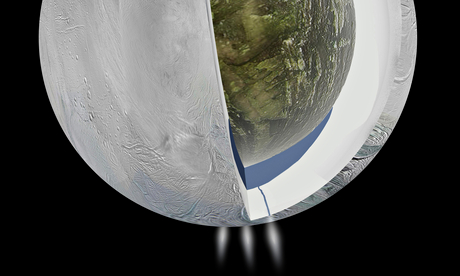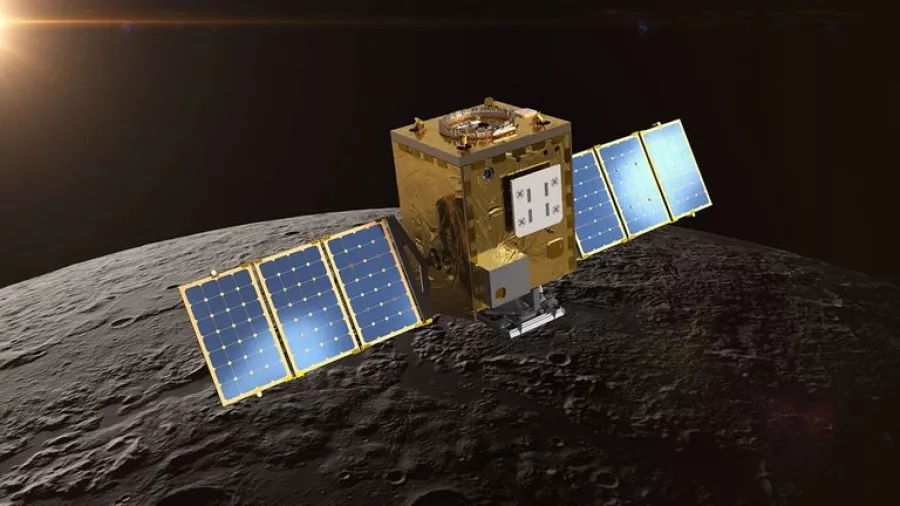 Researchers have discovered a deep saltwater ocean on one of the many small moons that orbit Saturn, leading scientists to conclude it is the most likely place in the solar system for extraterrestrial life to be found.
Researchers have discovered a deep saltwater ocean on one of the many small moons that orbit Saturn, leading scientists to conclude it is the most likely place in the solar system for extraterrestrial life to be found.
Gravitational field measurements taken by Nasa's Cassini space probe revealed that a 10km-deep ocean of water, larger than Lake Superior, lurks beneath the icy surface of Enceladus at the moon's south pole.
David Stevenson, a planetary scientist at the California Institute of Technology in Pasadena, said the body of water was so large it "may extend halfway or more towards the equator in every direction. It might even extend all the way to the north."
The presence of a saltwater ocean a billion kilometres from Earth more than satisfies Nasa's long-held mantra of "follow the water" to find signs of alien life, but water is not the only factor that makes Enceladus such a promising habitat. The water is in contact with the moon's rocky core, so elements useful for life, such as phosphorus, sulfur and potassium, will leach into the ocean.
The first hint that Enceladus might harbour a subterranean ocean came in 2005 when Nasa's Cassini spacecraft photographed extraordinary jets of water vapour blasting out of fissures in the moon's south pole. The source of the water was a mystery, and an ocean of liquid water was only one possibility.


 On February 26, 2025, a NASA probe called Lunar Trailblazer lifted off from Kennedy Space Center...
On February 26, 2025, a NASA probe called Lunar Trailblazer lifted off from Kennedy Space Center... She navigated segregation to become an esteemed mathematician — and today, her work helps billions of...
She navigated segregation to become an esteemed mathematician — and today, her work helps billions of... A newly discovered species of large dinosaur lived in marshy areas, hunted for fish and had...
A newly discovered species of large dinosaur lived in marshy areas, hunted for fish and had... Scientists may have discovered an explanation for a cosmic mystery uncovered by the James Webb Space...
Scientists may have discovered an explanation for a cosmic mystery uncovered by the James Webb Space...






























